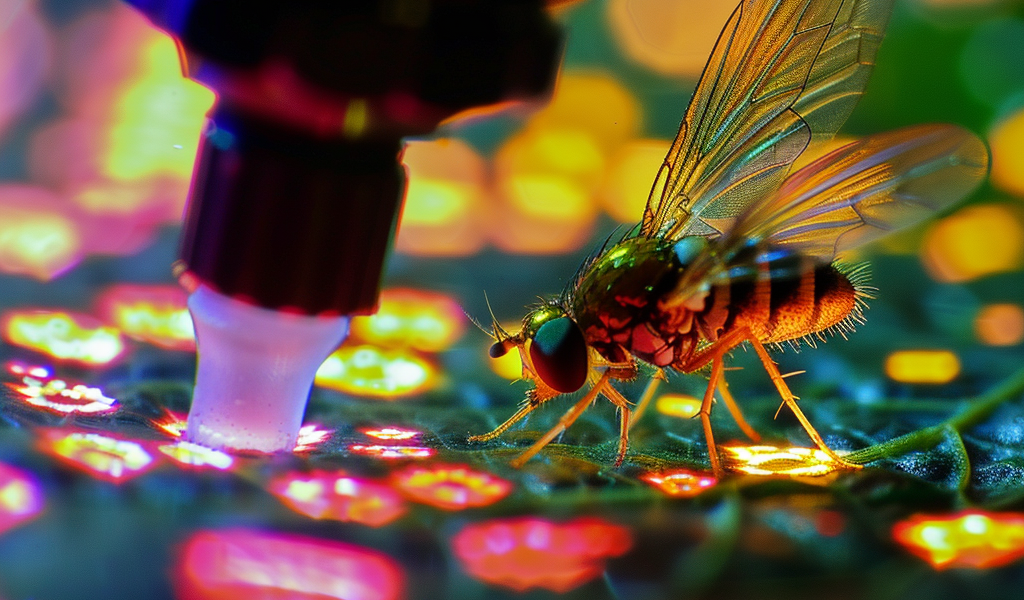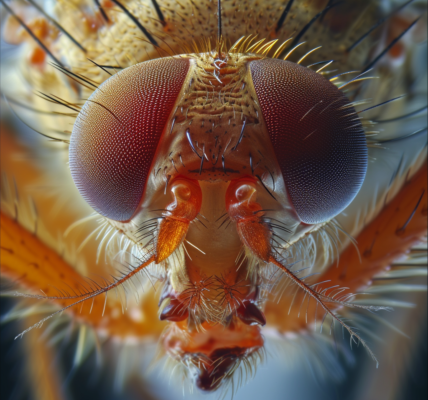A recent study has unveiled significant insights into the cognitive decline associated with aging, utilizing fruit flies as a model organism. This research, published in the journal Nature Communications, identifies a specific protein buildup in the brains of aging fruit flies that parallels memory loss observed in humans.
The focus of the study was on a protein known as filamentous actin, or F-actin. Researchers found that this protein tends to accumulate in the brains of older fruit flies, which can hinder crucial processes responsible for clearing waste and repairing damaged components in brain cells. This accumulation is believed to contribute to the cognitive decline and memory impairment seen in aging organisms.
Through targeted genetic modifications in the neurons of fruit flies, scientists discovered that they could effectively prevent the buildup of F-actin. These interventions resulted in a remarkable extension of the healthy lifespan of the flies by approximately 30%. Notably, the researchers observed that lower levels of F-actin correlated with enhanced brain function and longevity in the fruit flies.
Interestingly, the researchers initially noted that fruit flies subjected to a restricted diet exhibited both increased lifespan and reduced F-actin levels in their brains. Additionally, treatment with rapamycin, a drug recognized for its lifespan-extending properties, also resulted in decreased F-actin accumulation. These observations prompted further investigation into the relationship between F-actin and brain aging.
By employing genetic tools to target the accumulation of F-actin, the research team was able to significantly improve the overall health of the fruit flies. This approach not only preserved their cognitive abilities but also maintained their learning and memory functions as they aged. The researchers highlighted that disrupting F-actin in the brains of older flies restored their waste removal process, known as autophagy, to levels comparable to those found in younger flies.
While the findings from this study are promising, researchers caution that further investigation is essential to determine whether these insights can be translated to human aging and cognitive decline. The implications of this research could pave the way for new strategies aimed at enhancing cognitive health in aging populations.
As scientists continue to explore the mechanisms behind aging and cognitive decline, the role of proteins like F-actin may prove to be a crucial area of study in the quest for maintaining cognitive function in later life. This research not only sheds light on the biological processes involved in aging but also raises intriguing questions about potential interventions that could mitigate memory loss and cognitive impairment in humans.
In summary, the study of fruit flies has opened new avenues for understanding the complexities of aging and its effects on memory and cognition. With ongoing research, there is hope that these findings will lead to advancements in preserving cognitive health as we age.





